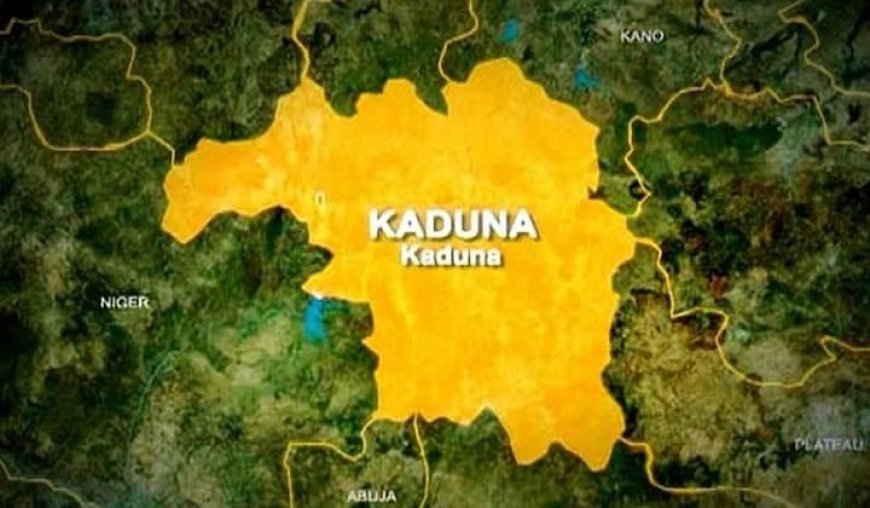Kaduna adopts ready-to-use therapeutic food for children

Kaduna State has become the first sub-national government in Nigeria to adopt and implement the Ready-to-Use Therapeutic Food initiative, a major step in tackling severe acute malnutrition among children.
The United Nations Children’s Fund hailed the development as a landmark achievement, describing Kaduna’s commitment to child health and nutrition as a model for other states to emulate.
Speaking during a high-level meeting with the Kaduna State Government at the Sir Kashim Ibrahim House, Kaduna on Tuesday, the UNICEF Nigeria Country Representative, Ms. Wafaa Saeed Abdelatef, said the state had shown strong leadership and consistency in addressing child malnutrition and improving health outcomes.
“Kaduna State stands out as a model for others to follow. The government’s proactive adoption and implementation of the RUTF initiative underscore a deep commitment to improving the lives of children and ensuring that no child suffers from malnutrition,” Abdelatef said.
She added that UNICEF’s partnership with Kaduna had yielded significant progress in combating malnutrition, enhancing water and sanitation services, and strengthening education and health systems.
“This milestone marks a defining moment in our collaboration. Kaduna’s leadership has demonstrated that with political will, transparency, and effective partnership, sustainable progress in child nutrition is achievable,” she added.
The meeting brought together senior government officials, UNICEF representatives, and development partners, who described the move as a “turning point” in the fight against malnutrition in Nigeria.
Governor Uba Sani, in his remarks, reaffirmed his administration’s determination to build on the progress achieved through the RUTF initiative, which he said formed part of a broader strategy to promote inclusive development and eradicate child malnutrition in Kaduna.
“The launch of the Ready-to-Use Therapeutic Food distribution across Kaduna State is a vital step toward ending severe acute malnutrition.
“We are determined that no child will be left behind in the fight for survival, growth, and a healthier future,” the governor said.
RUTF, a high-energy, nutrient-rich paste made from peanuts, milk powder, sugar, vegetable oil, and essential vitamins and minerals, is used in the treatment of children suffering from severe acute malnutrition. The product allows for community-based treatment, reducing the need for hospitalisation and improving recovery rates among children under five.
Governor Sani commended UNICEF’s long-standing partnership with the state, noting that the organisation’s technical and financial support had yielded “transformative results” across critical sectors, including health, nutrition, education, and Water, Sanitation and Hygiene.
Our collaboration with UNICEF continues to strengthen service delivery systems and expand access to essential services. Through this partnership, we are improving the lives of thousands of children and families in Kaduna,” Sani said.
The governor further explained that Kaduna’s participation in flagship programmes such as the RUTF initiative and the Accelerating Sanitation and Water for All (ASWA III) project — for which Kaduna is currently the only participating state in Nigeria — reflected the government’s vision of building “resilient, inclusive systems that protect the vulnerable and nurture human capital.”
This recognition by UNICEF reinforces our values of transparency, efficiency, and purposeful leadership,” he said. “We take great pride in this milestone and remain committed to expanding access to quality healthcare, clean water, and adequate nutrition for every child in Kaduna State.”
Governor Sani said his administration had consistently met counterpart funding obligations and would continue to prioritise health and nutrition in its policy agenda.
“The health and well-being of our children are at the heart of our development vision,” he said. “By investing in nutrition, we are investing in the future of Kaduna State.”
At the conclusion of the meeting, both UNICEF and the Kaduna State Government renewed their commitment to deepening collaboration to ensure that every child in the state grows healthy, nourished, and full of potential.
“Together,” Governor Sani affirmed, “we will continue to build a Kaduna defined by equity, dignity, and shared progress.”
According to UNICEF data, an estimated 2 million children in Nigeria suffer from severe acute malnutrition annually, with only a fraction accessing life-saving treatment.
The agency emphasised that the widespread adoption of the RUTF model could significantly reduce child deaths linked to malnutrition and improve developmental outcomes nationwide.
on October 10, 2025, reported that the Special Assistant to the Kaduna State Governor on School Feeding Programme, Dr. Fauziya Buhari-Ado, highlighted the vital role of the initiative in tackling child malnutrition ensuring pupils receive nutritious daily meals across Kaduna State.
She said the programme not only improves children’s health and learning outcomes but also empowers women employed as cooks and boosts local food production through the engagement of farmers. She called for stronger partnerships to combat hunger and promote sustainable development, while commending Governor Uba Sani for his leadership in sustaining the school feeding programme.

 admin
admin 


